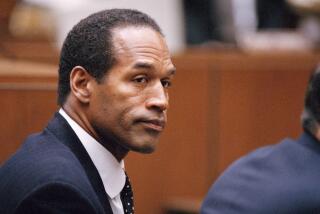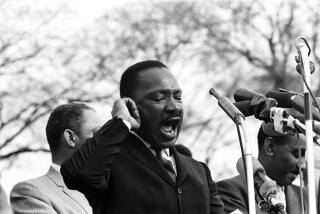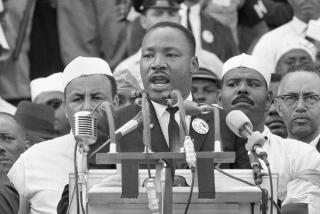Hendrix’s Vision
- Share via
As a 20-year-plus devotee of the life and works of Jimi Hendrix, I must take strong exception to several of the quotations in Chuck Philips’ Nov. 26 article.
As Vernon Reid, Little Richard and others point out, Hendrix broke down many doors and blew apart the mentality that governed numerous musical and racial stereotypes of that era. Perhaps the true beauty of Jimi’s stance, though, is that these barriers were broken on all sides of the fence, for everyone who was feeling the pain and constrictions that he felt.
It is ludicrous for Reid to state that Hendrix’s version of the “Star-Spangled Banner” is so powerful “because he was black.” It’s so damn powerful because it spoke, and continues to speak, for people of all races.
In the summer of 1969, it reached into white suburbia and encapsulated the feelings of thousands of middle-class white youths too--white kids, like kids of all races everywhere who were feeling hostile, frustrated and confined by a system they couldn’t change, by a generation they were getting a raw deal from.
Reid also asks, “Who could listen to ‘Machine Gun’ without thinking about black soldiers in Vietnam?” I don’t know, Vernon. Around that time, most kids I knew were thinking about all their buddies in ‘Nam when they heard “Machine Gun.” Black kids, white kids, blue, gray, whatever. Kids from all backgrounds were trapped in that hellhole.
DAVID K. TEDDS
Woodland Hills
More to Read
The biggest entertainment stories
Get our big stories about Hollywood, film, television, music, arts, culture and more right in your inbox as soon as they publish.
You may occasionally receive promotional content from the Los Angeles Times.










